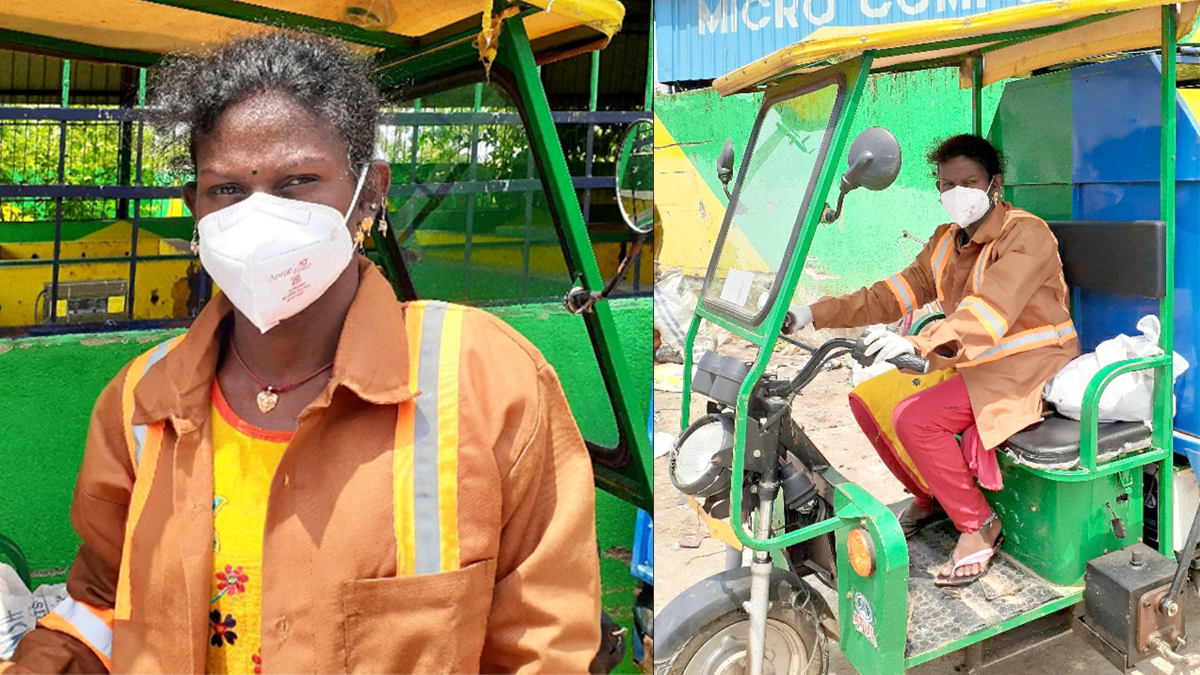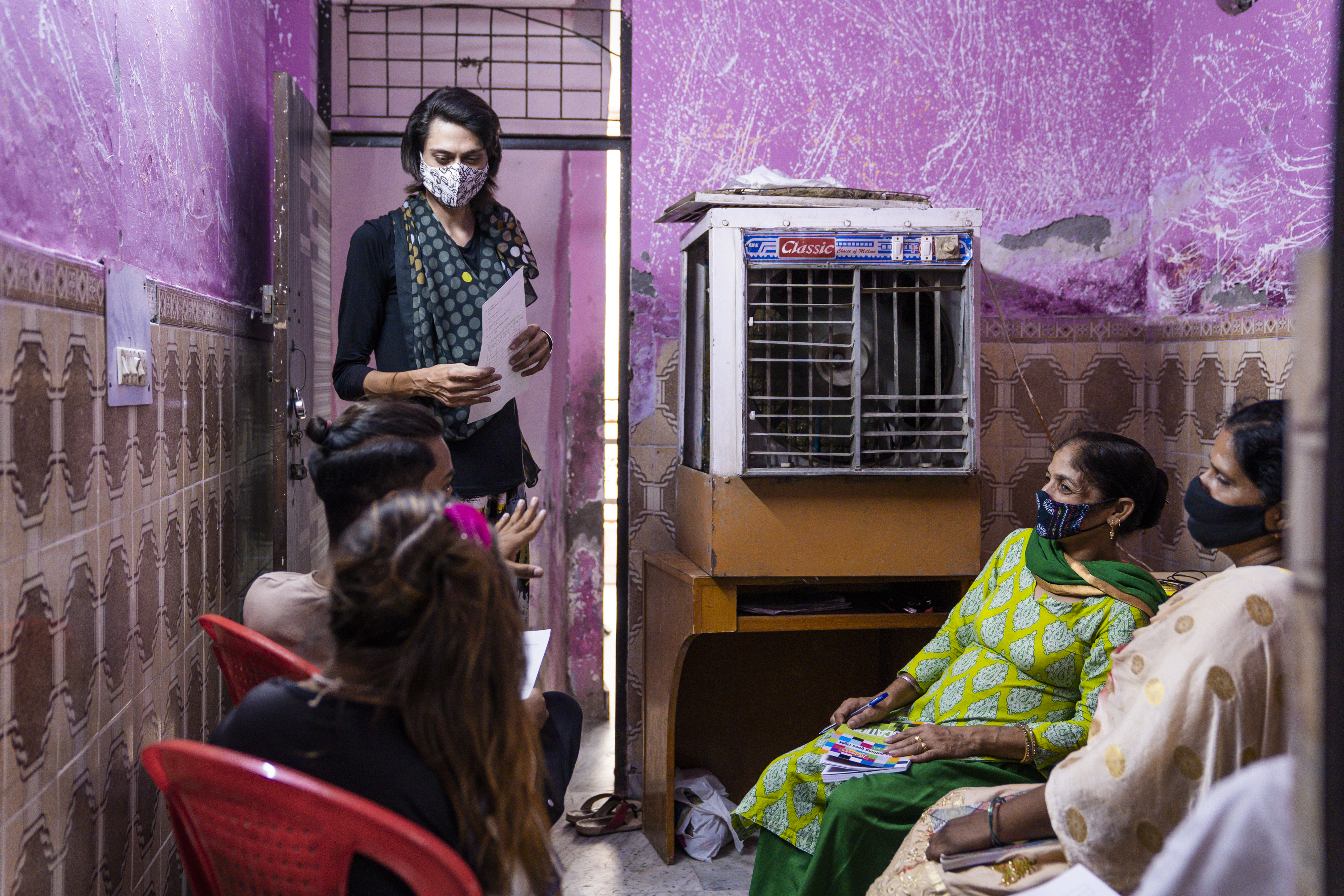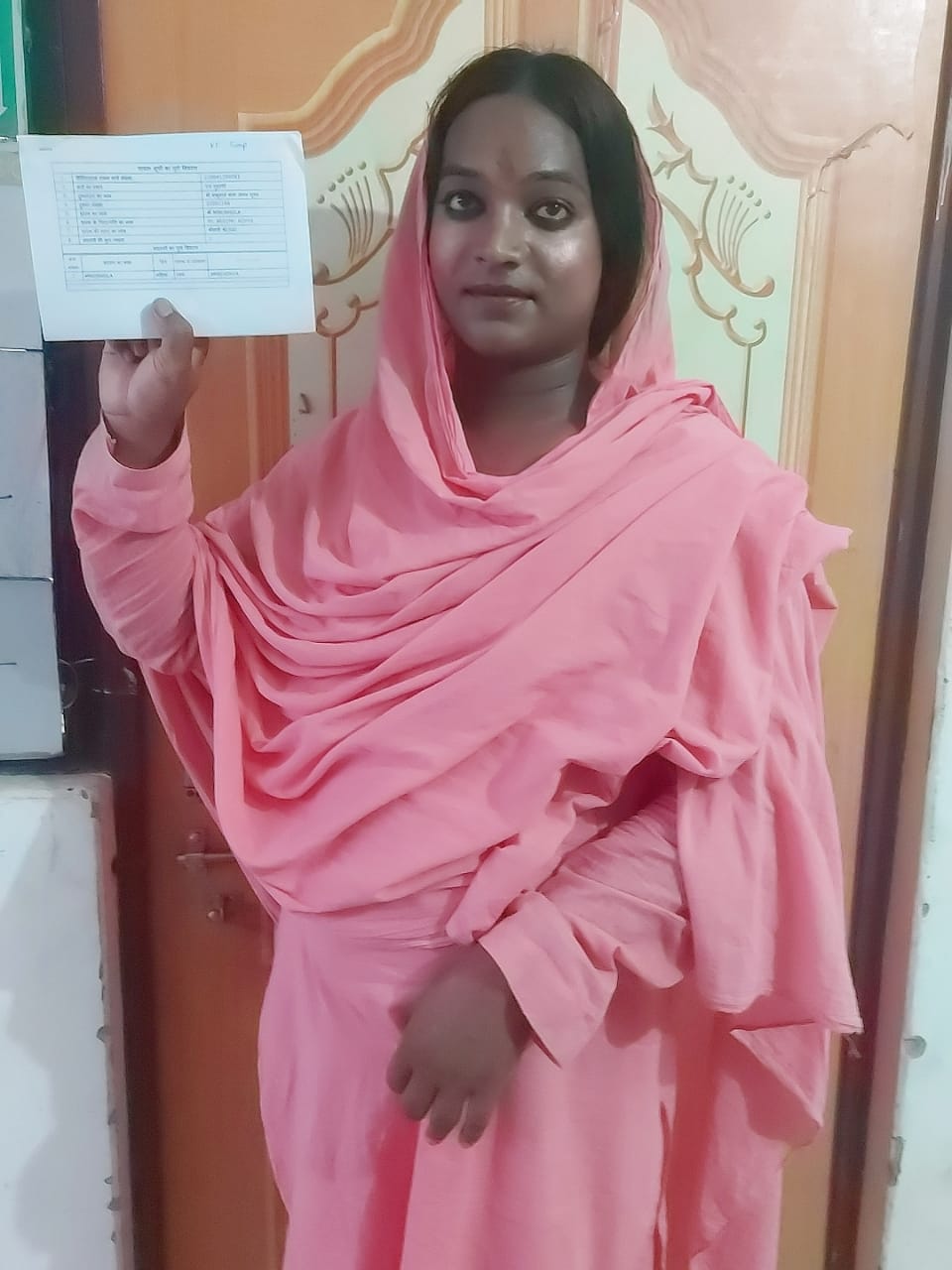Making COVID-19 response third gender inclusive
August 9, 2022

Liza works as a vehicle operator for door to door waste collection.
Niranjal Malik, 25, or Liza identifies herself as a transgender. Like other transgenders, Liza has had to live on the fringes of society, ostracised because of her gender identity.
“As a teenager, I realized that I could not identify myself as a male or a female. This was met with a lot of criticism and boycotts. While my family accepted me, society did not. I was asked to stop coming to school. The neighbours started to harass my parents. I eventually had to leave my house,” Liza shares.
The Supreme Court of India has recognized transgender people as a third gender, in a landmark ruling. It ordered the government to provide transgender people with quotas in jobs and education in line with other minorities, as well as key amenities. However, the LGBTQI community continues to face discrimination— one can often hear sad stories of sex trade and exploitation, cruelty, and humiliation.
“Every time I went to people asking for money, my dignity was hurt. I was in despair and could no longer continue to do this. While begging, I saw people picking up recyclable waste like plastic bottles and selling it for a price. I thought I could do the same. At least I could earn my livelihood. It would be better than begging,” Liza adds.
Under UNDP India’s plastic waste management programme, Liza currently works as a vehicle operator working on door-to-door waste collection, as part of Safai Saathi group, segregating the plastic waste from the dry waste, and selling it to the Material Recovery Facility (MRF).
The COVID-19 pandemic has been a crisis of apocalyptic proportions – wiping out meagre means of livelihood for transgenders like Pia Kapoor. Even before COVID-19, the community was already living in dire poverty due to lack of targeted policies to have access to basic services. Mostly they would live by crashing fancy weddings or dance in temples, sing songs and leave with fistful of rupees.
“A lot of transgender people resort to begging or are sex workers or they go to ceremonies like weddings to perform. The pandemic has put an end to most of these activities. A lot of people in my community were starving,” said Pia, who now works as a co-ordinator with a local NGO in Uttam Nagar, an impoverished part of New Delhi.

Liza works as a vehicle operator for door to door waste collection.
“Getting ration was the biggest problem, many didn’t have ration cards,” Pia says. Amidst the raging pandemic which has now lasted for over 18 months, the central and state governments have been trying to ensure that the poor can access dry food rations such as rice, wheat, pulses free or at a heavily subsidised rate but the service continues to fall through the cracks.
From August 2020 to March 2021, the United Nations Development Programme (UNDP) in collaboration with the National AIDS Control Organization (NACO), Ministry of Health and Family Welfare, Government of India implemented a programme in six states – Gujarat, Uttar Pradesh, Delhi, West Bengal, Punjab and Maharashtra - to support the LGBTQ community and enable them to access social security schemes such as pensions, insurance schemes and skill building programs. Strengthening access to social protection measures among PLHIV and key populations programme in the selected states is implemented in partnership with Catalyst Management Services (CMS) Private Limited.
The programme was able to reach out to 6,000 people from the LGBTQ community in the six states and facilitate access to Rs.25.91 crore ($ 3.48 million) worth of government social security benefits. Some of these were in terms of Government direct cash transfers, while others were in terms of other assistance schemes.

Photo of Group of transgenders discussing eligibility criteria for Government schemes.
UNDP intervention also focussed on the training of volunteers and community leaders and in accessing government sponsored health, life or accidental insurance schemes which are available at a very modest premium.
“I did not think getting a ration card or any government benefit was possible for people like us,” says Bhola (name changed) of Pali Bazaar, Gorakhpur in Uttar Pradesh.
It is a big relief for her and can now concentrate on learning sewing and picking up a new trade.
At 21, Molu already faces a life of deprivation and disease. Forced to drop out of school, he contracted HIV a few years back and barely makes enough to sustain himself.
“Actually, I was undergoing counselling about my HIV infection, when I heard about this training opportunity,” says Molu. With the help of UNDP’s intervention, he enrolled for a beautician training course sponsored by the National Skill Development Council (NSDC). Molu has high hopes from his newfound skills and is waiting for the pandemic to get over and for people to start visiting salons again, “This is not just a job but a passion for me.”
UNDP in India is actively involved in the implementation of welfare measures for the transgender community and has also developed a Framework document on Transgender Welfare to support the Government of India and State Governments.
UNDP as part of the joint UN program on HIV & AIDS, in partnership with State Health and Social Welfare departments, is also planning to conduct COVID-19 vaccination camps by the end of July, targeting the transgender community in Gujarat, West Bengal and Odisha. The target is to vaccinate 2,000 members of transgender communities in each state over a period of 4-5 months.
In recent years, much progress has been made in this regard with the decriminalization of Article 377 of the Indian Penal Code, removing a penal measure that could be used to target people of the same gender having consensual sex. Another positive step has been enactment of the Transgender Persons (Protection of Rights) Act in 2019, providing them equitable access to health, education, skill development, housing, among others.
There are no official estimates for the LGBTQ population in India, but the government pegged the number of such persons at 2.5 million in an affidavit in the Supreme Court during hearings that sought to decriminalise same sex between consenting adults. In the Census 2011, transgender population were logged at 487,803 but the Government added a caveat: It is possible that some transgender would have returned themselves as either male or female depending upon their choice.

Bhola with her ration card.
UNDP in India is actively involved in the implementation of welfare measures for the transgender community and has also developed a Framework document on Transgender Welfare to support the Government of India and State Governments.
UNDP as part of the joint UN program on HIV & AIDS, in partnership with State Health and Social Welfare departments, is also planning to conduct COVID-19 vaccination camps by the end of July, targeting the transgender community in Gujarat, West Bengal and Odisha. The target is to vaccinate 2,000 members of transgender communities in each state over a period of 4-5 months.
In recent years, much progress has been made in this regard with the decriminalization of Article 377 of the Indian Penal Code, removing a penal measure that could be used to target people of the same gender having consensual sex. Another positive step has been enactment of the Transgender Persons (Protection of Rights) Act in 2019, providing them equitable access to health, education, skill development, housing, among others.
There are no official estimates for the LGBTQ population in India, but the government pegged the number of such persons at 2.5 million in an affidavit in the Supreme Court during hearings that sought to decriminalise same sex between consenting adults. In the Census 2011, transgender population were logged at 487,803 but the Government added a caveat: It is possible that some transgender would have returned themselves as either male or female depending upon their choice.

 Locations
Locations